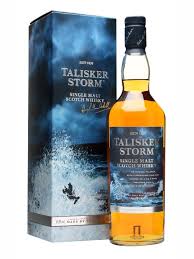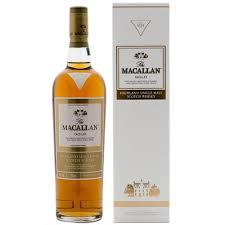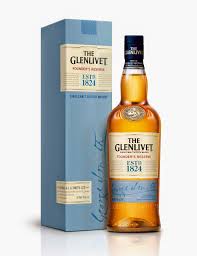|
The no-age statement (NAS) debate has been rumbling on for quite some time now so I thought I might as well chuck in my tuppence worth. I’m not going to argue the merits of aged vs NAS whiskies, that’s been done to death, but I do want to touch on a couple of points that are my own personal bugbear in this whole debate. Firstly, to one of the most frequent comments I have seen on blogs and forums which essentially goes along the lines of; ‘I don't have anything against NAS whiskies as such, but why can’t they be a bit more honest and tell us what’s in it, or put an age breakdown on the back label, or something?’. Well, the fact of the matter is that they can’t. And I don’t mean can’t as in, ‘my marketing department don't want me to’ or ‘I can’t be bothered to find out’ (though that may play a part as well!), I mean can’t as in not allowed to. And, unless the regulations change, it doesn't matter how much we whinge and moan and plead, we will still not be able to find out exactly what goes in to the various NAS whiskies. The regulations I am referring to are of course the Scotch Whisky regulations 2009. Now most of us know that the age on a bottle of whisky must be age of the youngest whisky in the bottle. Less well known though is that the very regulations which are supposed to make things clearer for consumers, specifically prohibit the use of more than one age or vintage in the description, presentation or labelling of the product.* So not only are distillers not allowed to detail the different ages/vintages that make up their NAS on the label or packaging, but if you follow the regulations to the letter, then they are not even allowed to tell us about the different components in their marketing blurb or at a tasting. As to whether the producers would tell us if they were able to, well that is a whole different question, isn't it! On the subject of producers, this brings me nicely to my second point which is that I really wish they wouldn't try to pretend that the surge of NAS whiskies is to do with anything other than an increased demand for single malt and a lack of aged stock to fulfil that demand. Some distillers are very candid and admit that this is the case, but others…not so much. One of the terms which really bugs my happiness is ‘flavour led whiskies’ as in, ‘yes, freed from the shackles of the restrictive age statement, we can now create a brand new range of flavour led whiskies to further enhance your whisky tasting experience’. (And no, that’s not a direct quote from anyone, just me paraphrasing what I have heard and read recently) So does that mean that flavour didn't matter at all for your 12 yo or your 18 yo? That as long as the casks were the right age that was all that mattered? Give me a break! And if it’s all about flavour, then why do they continue using age statements on their older, more expensive, products? Would you look at that, I just answered my own question! At the end of the day though, it doesn't really matter what we think about NAS whiskies, like them or not, it looks like they are here to stay (at least until the next whisky bust). After all, we, the whisky geeks, are but a very, very, small part of the worldwide whisky market - new whisky consumers, that haven't had 20 years of whisky companies telling them that older is better, are going to approach whisky from a totally new perspective where maybe age doesn't matter. For all us traditionalists though, I would propose the following solution - next time you see a NAS whisky, try it. If you like it and think it is good value for money then buy it and enjoy. If you don’t like it or don't think it is good value for money, don't buy it. Simple as that. *Should you feel so inclined you can find a full copy of the regulations on the SWA website but the relevant bits state;
12 (1) … that any maturation period or age may only be specified in the description, presentation or labelling of a spirit drink where it refers to the youngest alcoholic component in the drink… (3) A person must not label, package, sell, advertise or promote any Scotch Whisky in a way that includes a reference relating to when it was distilled unless- (a) the reference relates to a single calendar year (b) all of the whisky in the drink was distilled in that year ….
0 Comments
Leave a Reply. |
AuthorWhisky Impressions is run by Kate Watt. Previously at Springbank and then Glenfarclas, I now design some whisky related stuff and write about it, and anything else that takes my fancy, on this blog. Archives
January 2019
Categories
All
|



 RSS Feed
RSS Feed
